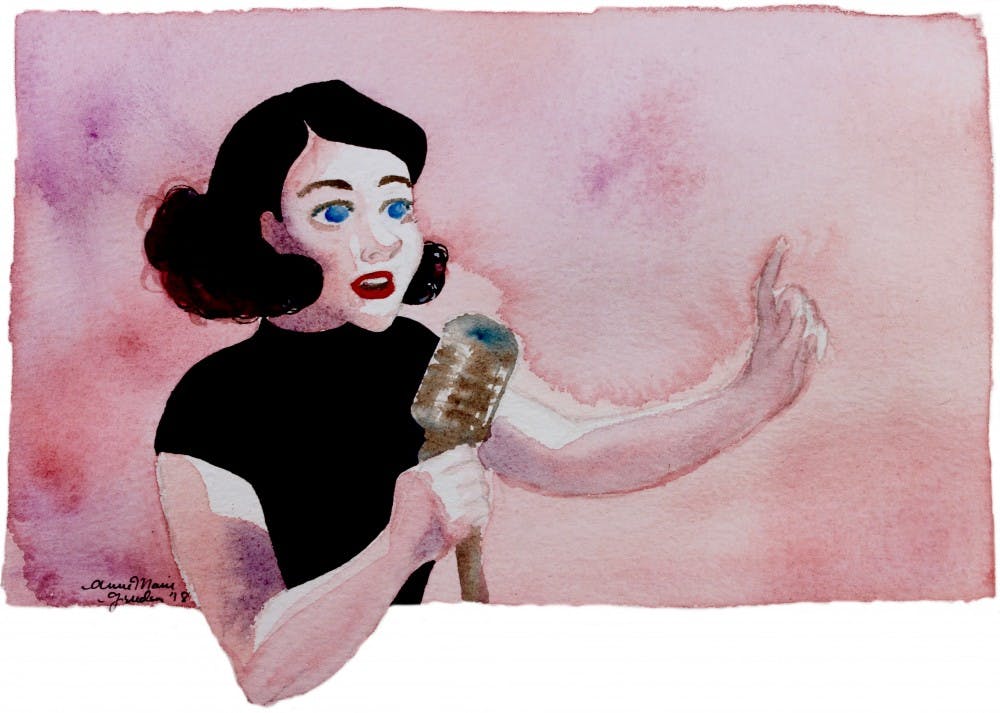If the 2018 Primetime Emmy Awards were defined by one show, it would be “The Marvelous Mrs. Maisel,” which won five awards, the most of any television show this year. It also won five out of six major category nominations, an extremely high return when compared with shows such as Game of Thrones (two out of seven) and The Assassination of Gianni Versace (three out of nine.) A so called Emmys “sweep” is great for the show that gets the prizes, but is generally bad for the television industry.
I'm not writing this because I dislike The Marvelous Mrs. Maisel. I am a fan of the show, and have seen the entire first season. I like the eerily familiar 1950s New York setting, the plot about a woman learning to be self–sufficient, and the stand–up comedy. I'm even a huge fan of the creator/writer/director of the show Amy Sherman–Palladino, who also created Gilmore Girls, the show I have been obsessed with since I was thirteen. However, the show is not as remarkable as the Emmys make it out to be. Frankly, other shows deserved some of the awards more, and are much more consequential for the television industry.
An Emmy yields a lot of power. It can give life to a show that may have a small viewership and may be on the rocks for cancellation. If a show gets an Emmy, it tells networks that a show is well–perceived, and will lead to the creation of shows similar to it. This can lead to more diversity and inclusion in television. After Transparent won Emmys in 2015, the number of transgender characters on cable and broadcast television went up from one in the 2014–2015 television season to eleven in the 2017–2018 television season.
Maisel had no need for an award to ensure a renewal. It was already renewed for a second season before the first even premiered. The premise of the show is pure Emmys fodder and shows clear influence from other stylized period shows.
One of the aspects of The Marvelous Mrs. Maisel, which is often praised is that it is a show about women by women. However as The New Yorker’s Emily Nussbaum says, “the silver lining of the era is how there are so many great comedies about women or by women—Broad City, Jane the Virgin, Lady Dynamite, Crazy Ex–Girlfriend, Search Party, Claws, and I could go on—that it’s not unreasonable to gripe when a weaker one hogs the spotlight. That’s the true liberation, ladies.” Maisel is feminist show, but it shows only a small part of the female dimension, where many other comedies showcase a wide range of women with many identities.
Another place where Maisel lacks is in diversity. James Corden struck a chord at the awards show when he jokingly said, “Let’s get it trending: #EmmysSoWhite.” Since Maisel swept almost all of the major comedy awards, the awards left out many shows led by people of color that deserved to be recognized. Issa Rae’s performance on Insecure is indelible and relatable, and her performance carries her show. Donald Glover’s writing and directing on the ambitious and powerful Atlanta, deserved much more recognition than it got. Overall, of the 26 Emmys presented at the awards show, only three went to people of color.
The entertainment industry knows that diversity sells. According to Variety, “With 54 of the season’s 75 pilots cast so far, people of color have been cast in lead roles in approximately 56 percent of new projects across all of the networks.” However, there is not a similar trend in shows that win high–caliber awards. This needs to change so that in the future more quality, high–budget content about people of color can be made, and the creation of shows with diverse casts is furthered.
I enjoyed The Marvelous Mrs. Maisel, but I don't think it deserved to sweep the entire comedy section of the Emmys. By winning Outstanding Writing for a Comedy Series, Outstanding Directing for a Comedy Series, Outstanding Supporting Actress in a Comedy Series, Outstanding Lead Actress in a Comedy Series, and Outstanding Comedy Series, it took away the opportunity from other deserving shows to get their time in the spotlight. The Emmys should serve to promote what is forward–thinking about television. By rewarding Maisel so heavily, it just sticks with the status quo.

